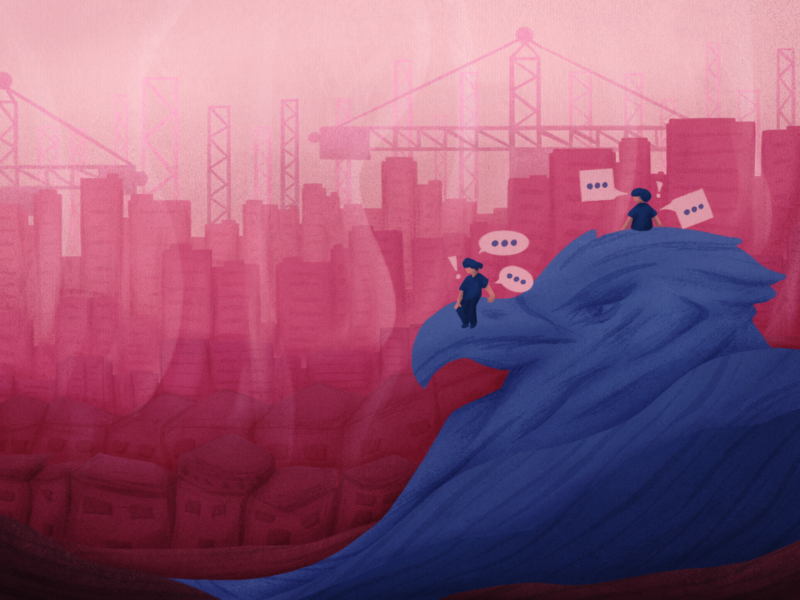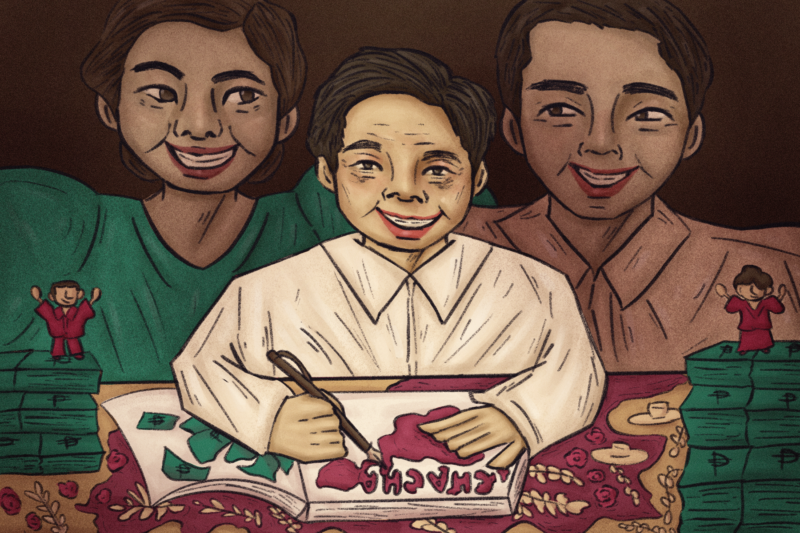A NEW epidemic has been spreading throughout the Philippine government as various agencies have undergone rebranding efforts, ranging from new logos to fresh slogans. Most notable among these initiatives is the administration’s Bagong Pilipinascampaign, which represents the government’s action for an “inclusive” economic and social transformation plan. President Ferdinand “Bongbong” Marcos, Jr. mandatorily implemented this rebranding in all government agencies, where the logo must be visible on all official government letterheads, websites, social media accounts, and state-funded flagship programs.
Despite not using public funds, the rebranding draws divided opinion from the citizens, similar to the controversial Php 3-million Philippine Amusement and Gaming Corporation (PAGCOR) logo and the Department of Tourism (DOT)’s “Love the Philippines” rebranding.
More or less, the new government branding was inspired by the Bagong Lipunan campaign of his father, the late dictator Ferdinand Marcos Sr. Looking at the bigger picture, these rebranding antics play a more consequential role in the Marcoses’ propaganda to reclaim legitimized seats in power.
Beyond the facade
The mastery of the Marcoses in institutionalizing propaganda is no secret, as they have crept back to Malacañang through utilizing the same strategy. Given the recent rebranding initiatives, Marcos Jr.’s administration also looks to make use of this vanity scheme, glossing over the harsh realities confronting the Filipino masses.
Based on a recent report released by the Philippine Statistics Authority (PSA), farmers and fisherfolk still grapple with their everyday living, as they remain to have the highest poverty incidence rates in the country. On top of this, the agriculture sector continues to face problems prompted by issues of smuggling, climate change, and agricultural land loss.
Although rebranding expenditures can bring in several economic implications, this exorbitant use of resources only highlights the administration’s seemingly misplaced sense of priorities, especially with the national government’s outstanding debt at Php 14.15 trillion as of writing.
The DOT’s deeply controversial video further drives this point forward. Having used stock footage of a fisherman and a rice farm from our Southeast Asian neighbors showcases the lack of intentionality put into these videos despite its Php 49 million cost. Moreover, such an instance exposes the disconnect and lack of initiative to reach out to local communities and show their contexts.
Needless to say, this excessive spending for these makeover activities only proves that the government is more interested in maintaining a favorable public perception than finding solutions to the country’s existing social ills.
Quick escape
Driven by the fixation on image and reputation, the administration tends to focus on public branding, seeking to affect the people’s perception of the country, government, and its citizens.
Realistically, government rebranding efforts are not a rare trend in the country. Former president Fidel V. Ramos emphasized long-term economic development with “Philippine 2000,” while then-two-term president Gloria Macapagal-Arroyo focused on strengthening government institutions through the “Strong Republic” branding. Former president Benigno “Noynoy” Aquino III also pushed for the “Daang Matuwid” slogan in eliminating government corruption.
Likewise, tourism slogans have been changed several times, with “WOW Philippines” and “It’s More Fun in the Philippines” being the most memorable ones in the past two decades. Although such government practices aid in keeping their branding fresh and relevant, the question of necessity remains open, given how the country is still recovering from the debilitating pandemic.
Ironically, amid the unfulfilled promises from its first year in the Malacañang, the Marcos-led government still feasts on these needless publicity stunts, seemingly to cover up their subpar leadership. For instance, the Bagong Pilipinas campaign was launched last July 2023, but has not yet shown significant results.
Although the PSA’s July report shows the lowest inflation rate (4.7%) since March 2022, such a rate can still be unstable, as the agency still needs to account for the damages of Typhoon Egay. The PSA also noted that rice prices have increased since February, which could push inflation up.
Filipinos are still facing challenges that greatly affect living conditions, such as price hikes in public transportations, limitations in food supply, and the effects of El Niño in the country. Rather than a continuous slate of rebranding stunts, solving the salient injustices experienced by the everyday Filipino should be on the administration’s list of action points.
Questioning whether the Bagong Pilipinas campaign is genuine or just a facade cannot be discounted. The government must do more to show its commitment to serving the people, not just its image. After all, this is a Bagong Pilipinas campaign, not Bagong Mukha.
Impalpable progress
While a good public image is generally advantageous for a country’s reputation, actual change must not only be seen but felt. If not linked with on-the-ground initiatives, rebranding efforts only point to governance driven by deception and false promises.
Suppose the Marcos administration is serious enough about solving the country’s deep-seated problems. In that case, it must first unmask itself from a facade that hides its current positionality and come down from its position of privilege. Only then can it truly include the marginalized in discussing meaningful solutions and achieving genuine developmental reforms for Filipinos and the nation.
These efforts currently remain as legacies heavily reliant on publicity and pretense. In the end, the remaining years of Marcos Jr. in power shall contribute to how the Filipino people will continue to remember his family’s legacy—one that is currently built on lies and whitewashed historical narratives.







